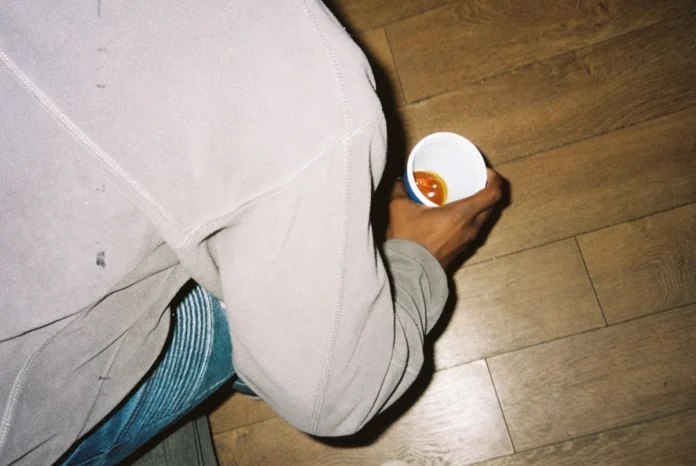“`html
Understanding Quetiapine for bipolar Sleep
Sleep disturbances are a common and often debilitating symptom of bipolar disorder. Many individuals with bipolar disorder struggle with insomnia, hypersomnia, or irregular sleep patterns, which can exacerbate mood episodes. Quetiapine, an atypical antipsychotic, is frequently prescribed to help manage these sleep issues while also stabilizing mood. This article explores how quetiapine works for bipolar sleep, its benefits, potential side effects, and what patients should consider before starting treatment.

How Quetiapine Helps with Sleep in Bipolar Disorder
Quetiapine is primarily known as a mood stabilizer, but its sedative properties make it particularly useful for addressing sleep problems in bipolar disorder. The medication affects several neurotransmitters in the brain, including serotonin, dopamine, and histamine. Its antihistamine activity is largely responsible for its drowsiness-inducing effects, which can help individuals fall asleep faster and stay asleep longer.
For people with bipolar disorder, sleep is often disrupted during manic or depressive episodes. During mania, patients may experience reduced need for sleep, while depression can lead to excessive sleepiness or poor sleep quality. Quetiapine helps regulate these extremes by promoting a more balanced sleep-wake cycle. Many patients report improved sleep continuity and reduced nighttime awakenings when taking quetiapine at bedtime.
The Role of Quetiapine in Bipolar Disorder Treatment
Quetiapine is approved by the FDA for the treatment of bipolar disorder, including manic, depressive, and maintenance phases. Its ability to address both mood symptoms and sleep disturbances makes it a versatile option for comprehensive management. Unlike some sleep medications that solely target insomnia, quetiapine provides dual benefits by stabilizing mood while improving sleep architecture.
Research suggests that quetiapine can help prevent relapse in bipolar disorder, partly by maintaining healthier sleep patterns. Consistent, restorative sleep is crucial for mood regulation, and quetiapine’s effects on sleep may contribute to its long-term efficacy in bipolar disorder management. Many psychiatrists consider it a first-line treatment for bipolar patients with prominent sleep disturbances.
Dosage Considerations for Sleep in Bipolar Disorder
The dosage of quetiapine for sleep in bipolar disorder varies depending on individual needs and treatment goals. Lower doses are often sufficient for sleep induction, while higher doses may be required for full mood stabilization. Typically, a starting dose of 25-50 mg at bedtime is prescribed for sleep, with gradual increases as needed.
It’s important to note that the sedative effects of quetiapine are usually more pronounced at lower doses. As the dose increases, the medication’s antipsychotic and mood-stabilizing properties become more prominent while the sedative effects may become less noticeable. Patients should work closely with their healthcare provider to find the optimal dose that addresses both sleep and mood symptoms without causing excessive daytime drowsiness.
Potential Side Effects and Considerations
Like all medications, quetiapine can cause side effects that patients should be aware of. The most common side effects related to sleep include next-day drowsiness, dizziness, and dry mouth. These effects are often most noticeable when first starting the medication or after dose increases, and they may improve over time as the body adjusts.
Other potential side effects include weight gain, increased appetite, and metabolic changes. Regular monitoring of weight, blood sugar, and cholesterol levels is recommended for patients taking quetiapine long-term. Some patients may also experience orthostatic hypotension (a drop in blood pressure when standing up), which can increase the risk of falls, particularly at night when getting out of bed.
Comparing Quetiapine to Other Sleep Aids for Bipolar Disorder
When considering sleep aids for bipolar disorder, quetiapine offers distinct advantages over traditional hypnotics. Unlike benzodiazepines or non-benzodiazepine sleep medications, quetiapine doesn’t carry the same risk of dependence or tolerance. Additionally, it provides mood-stabilizing benefits that most sleep medications lack.
However, quetiapine isn’t the only option for managing sleep in bipolar disorder. Other mood stabilizers like lithium or valproate may also improve sleep, though they typically don’t have the same immediate sedative effects. Some patients may benefit from combining quetiapine with other medications or non-pharmacological approaches like cognitive behavioral therapy for insomnia (CBT-I).
Long-Term Use and Withdrawal Considerations
For many patients with bipolar disorder, quetiapine becomes a long-term treatment. When used consistently, it can help maintain stable sleep patterns and prevent mood episodes. However, sudden discontinuation of quetiapine can lead to withdrawal symptoms, including rebound insomnia, nausea, and mood changes.
If a patient and their healthcare provider decide to discontinue quetiapine, a gradual tapering schedule is recommended to minimize withdrawal effects. It’s also important to have a plan in place for maintaining sleep hygiene and managing potential mood symptoms during and after the taper. Regular follow-ups with a psychiatrist can help monitor for any recurrence of sleep disturbances or mood instability.
Integrating Quetiapine with Other Sleep Hygiene Practices
While quetiapine can be highly effective for improving sleep in bipolar disorder, it works best when combined with good sleep hygiene practices. Maintaining a consistent sleep schedule, creating a relaxing bedtime routine, and optimizing the sleep environment can enhance the medication’s benefits.
Patients should also be mindful of factors that can interfere with quetiapine’s effectiveness, such as caffeine consumption late in the day or exposure to blue light before bedtime. Alcohol should generally be avoided as it can interact with quetiapine and worsen sleep quality. A holistic approach that combines medication with lifestyle modifications often yields the best results for long-term sleep management in bipolar disorder.
Final Thoughts on Quetiapine for Bipolar Sleep
Quetiapine represents an important treatment option for individuals with bipolar disorder who struggle with sleep disturbances. Its unique ability to address both mood symptoms and sleep problems makes it a valuable tool in bipolar disorder management. While it’s not without potential side effects, many patients find that the benefits of improved sleep and mood stability outweigh these concerns.
As with any medication, the decision to use quetiapine for sleep in bipolar disorder should be made in consultation with a qualified healthcare provider who can assess individual needs and monitor treatment response. With proper use and monitoring, quetiapine can significantly improve quality of life for many people living with bipolar disorder by helping them achieve the restorative sleep essential for mood regulation and overall wellbeing.
“`



